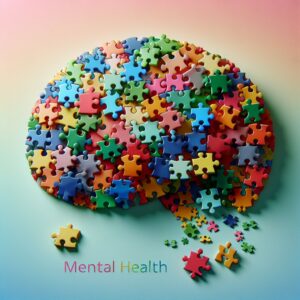Highlights
- Imagining a serene place can greatly decrease stress and boost healing.
- Listening to calming music can reduce stress levels and enhance emotional health.
- A nutritious, balanced diet is key for physical and emotional healing.
- Keeping a gratitude journal can boost happiness and decrease negative feelings.
- Gardening has therapeutic effects and can decrease depression symptoms.
Wellbeing and Self-Care: An Introduction
Self-care isn’t just a luxury; it’s a necessity. In our fast-paced world, where stress and responsibilities can often feel overwhelming, it’s important to prioritize wellbeing and self-care to maintain mental and physical health. Through intentional actions and mindful practices, we can improve our overall quality of life.
What Does Wellbeing Mean?
Wellbeing is a comprehensive health strategy that takes into account the balance and care of emotional, physical, and mental states. It is not simply about not being sick, but about achieving a state of total harmony within oneself. Wellbeing is accomplished by combining healthy habits, emotional resilience, and a nurturing environment.
Attaining wellness involves recognizing and dealing with the different aspects that make up a healthy lifestyle. This encompasses our physical well-being, emotional stability, social relationships, and even our spiritual harmony. Each of these aspects has a crucial part in how we see and engage with the world.
The Importance of Taking Care of Yourself
Self-care is about deliberately setting aside time to do things that make you feel healthy and happy. It’s about tuning into your body and mind, understanding what they need, and then meeting those needs. Self-care isn’t self-indulgent; it’s vital for maintaining energy levels, reducing stress, and avoiding burnout.
By making self-care a priority, we give ourselves the resources we need to better manage the ups and downs of life. This allows us to rest, reflect, and come back to our challenges with a new outlook. Self-care can be as simple as taking a moment to breathe deeply or as structured as a regular meditation or exercise routine.
Helpful Hints for Healing and Wellbeing
By incorporating self-care strategies into your daily life, you can see a marked improvement in your overall wellbeing. Here are some helpful hints that can assist you on your path to healing and self-discovery.
Using Positive Imagery
Positive imagery is a powerful tool for reducing stress and promoting healing. By imagining yourself in a peaceful, relaxing environment, you can create a sense of calm and tranquility within your mind. This technique can be practiced anywhere, whether you’re sitting quietly at home or taking a moment during a busy day.
Picture yourself lounging by a calm body of water, the sun’s rays lightly heating your skin, and a soft wind causing the leaves to rustle. As you concentrate on this tranquil image, feel the stress in your body dissipating.
The Advantages of Calming Music
Music possesses the extraordinary power to alter our feelings and mindset. Soothing music can assist in reducing stress and fostering relaxation when listened to. It can also improve the quality of sleep, decrease anxiety, and boost overall emotional health.
Think about making a soothing music playlist or trying out different types of music like classical, ambient, or sounds of nature. Let yourself get lost in the music, let it take you to a place of calm and relaxation. For more ideas, explore these effective anxiety calming techniques that can enhance your relaxation experience.
The Role of Diet in Recovery
The foods you eat can have a significant impact on your body’s ability to heal. Eating a balanced diet full of essential nutrients can improve your physical health, strengthen your immune system, and even enhance your mental focus and emotional stability. Incorporating a variety of fruits, vegetables, whole grains, and lean proteins into your meals can supply your body with the vitamins and minerals it needs to perform at its best.
In addition to this, it’s also crucial to stay hydrated. Water helps with digestion, circulation, and maintaining body temperature, which all play a part in your overall health. Think about adding foods like leafy greens, berries, nuts, and seeds to your meals for an extra dose of nutrients.
Keeping a Gratitude Diary
Keeping a gratitude diary is a straightforward but powerful method for changing your focus from negative feelings to positive ones. When you consistently write down what you’re grateful for, you develop an attitude of gratitude and positivity. This habit can boost joy, increase self-confidence, and even enhance relationships.
Begin by writing down three things you’re thankful for each day. These can be as basic as a hot cup of coffee in the morning or a kind act from a friend. As time passes, you’ll see a change in your outlook and a heightened feeling of satisfaction.
Things You Can Do to Boost Your Mental and Physical Health
Participating in things that help both mental and physical health is important for overall wellness. These things not only give immediate benefits but also help with long-term strength and joy. Let’s look at some successful strategies that can greatly improve your health.
Keeping your body moving on a regular basis is essential to maintaining good health. When you exercise, your body produces endorphins, which naturally boost your mood. Whether you decide to take a quick walk, pump some iron at the gym, or attend a dance class, physical activity can help to alleviate stress and increase your energy.
Activities that promote emotional health, such as writing in a journal, meditating, or creating art, can provide a way for you to express yourself and reflect on your feelings. These activities can help you understand your emotions better, gain new insights, and develop a stronger connection with yourself.
The Benefits of Gardening
One of the most beneficial activities for our mental health is gardening. It allows us to connect with nature and relax. Studies have shown that gardening can help alleviate symptoms of depression and anxiety, giving us a sense of fulfillment and purpose. The process of caring for plants and seeing them flourish is extremely gratifying.
Whether you have a sprawling garden or not, indoor plants or a small herb garden on your windowsill can provide similar benefits. Tending to plants encourages mindfulness and patience, making it a perfect activity for enhancing emotional health.
Practicing Mindfulness Meditation
Mindfulness meditation is a technique where you focus on the present moment in a non-judgmental way. It can help reduce stress, improve focus, and control emotions. Regularly meditating can even change the structure of your brain in a way that promotes general wellbeing.
First, find a peaceful area and sit in a comfortable position. Shut your eyes and take deep breaths, paying attention to the feeling of your breath going in and out of your body. If your mind starts to drift, softly redirect your attention back to your breathing. Regular practice can change how you handle stress and boost your emotional strength.
Practicing Deep Breathing
Deep breathing is a simple and effective technique for calming the mind and reducing stress. By taking slow, deep breaths, you can activate the body’s relaxation response, which can help lower your heart rate and blood pressure. This technique is especially helpful during times of anxiety or tension.
Give this a go: Take a big breath in through your nose, counting to four as you do so. Hold that breath for another count of four, then slowly let it out through your mouth, again counting to four. Do this a few times and see if you don’t feel a bit more relaxed.
Making Self-Care a Part of Your Everyday Routine
Making self-care a part of your everyday routine doesn’t need to be a big ordeal. By making little, purposeful changes, you can cultivate a lifestyle that nurtures your wellbeing. The secret is to discover practices that speak to you and weave them into your life consistently.
Start by pinpointing the areas in your life that need more balance or assistance. This could be stress management, better sleep, or improved social relationships. After you’ve identified your needs, look for activities and habits that can help you achieve these goals.
How to Make Self-Care a Daily Habit
One of the best ways to make sure you’re taking care of your health and happiness is to make self-care a daily habit. You can do this by carving out a specific time each day for self-care, whether it’s first thing in the morning, during your lunch break, or right before you go to bed.
Activities such as stretching, writing in a journal, reading, or savoring a peaceful cup of tea can be included in your routine. The critical factor is to select activities that you enjoy and that provide nourishment for your mind and body. Consistency is crucial, so make it a habit to participate in these activities on a regular basis.
Managing Time and Obligations
Managing time and obligations is crucial for living a balanced life. It’s simple to become inundated with duties, but establishing limits and arranging responsibilities can assist you in managing your time more efficiently.
Think about making a timetable that sets aside time for work, relaxation, and self-care. Learn to decline commitments that don’t align with your objectives or values. By doing this, you’ll have more energy and focus to devote to the things that truly matter.
Getting the Most Out of Self-Healing Techniques
For self-healing techniques to really make a difference, you need to get the most out of them by practicing them regularly and making mindful adjustments. This means figuring out what works best for you and being willing to experiment with new methods.
Staying Steady
Steadiness is the bedrock of any successful self-care regimen. Engaging in self-healing methods on a regular basis can lead to long-term enhancements in wellbeing. It’s not about flawlessness but rather making a pledge to put your health first every day.
Establish achievable objectives and monitor your advancement. Rejoice in minor triumphs and be gentle with yourself as you develop new routines. Keep in mind, the path to wellness is a lifelong journey, and each stride you make moves you nearer to a healthier, more joyful you. For more guidance, explore this decision-making guide to enhance your journey.
Monitoring Your Progress and Tweaking Your Approaches
Keeping an eye on your progress is crucial to make sure your self-care techniques are working. Whether you prefer to jot things down in a journal or use a tracking app, make sure to record your activities, your feelings before and after, and any noticeable shifts in your wellbeing. This practice will help you figure out which methods are the most helpful and tweak your routine as needed.
Let’s say you realize that meditating greatly lowers your stress. You may choose to meditate more often or for longer periods of time. On the other hand, if something isn’t working for you, think about trying something else. The idea is to make a self-care routine that changes as your needs change.
Ending Thoughts on Making Wellbeing a Priority
Making wellbeing a priority is a lifelong journey that demands dedication and self-awareness. It’s about understanding that self-care is not a one-off activity but a continuous process of personal growth and nurturing. By making self-care practices a part of your everyday life, you’re creating a base of strength and resilience that will help you navigate life’s challenges.
Keep in mind that wellness is a personal endeavor, and there isn’t a one-size-fits-all strategy. What is effective for one individual may not be for another, so be willing to try out various methods and find what suits you. Above all, be gentle with yourself and rejoice in every stride you make towards a healthier, more joyful existence.
Common Questions
A lot of folks have queries about how to successfully integrate self-care into their daily routine. Here are some frequently asked questions and helpful responses to guide you on your path.
How frequently should I engage in self-care activities?
The best approach to self-care is to incorporate it into your daily routine. Even if you only spend a few minutes each day on activities that enhance your wellbeing, it can make a big difference. The secret is to be consistent. By incorporating small, manageable habits into your routine, self-care will become a normal part of your life.
What are the best ways to heal yourself?
The best ways to heal yourself can differ from person to person, but some universally beneficial methods include practicing mindfulness meditation, using positive visualization, exercising regularly, and eating a balanced diet. Try out different methods to find out what suits you best and fits with your lifestyle.
What’s the best way to begin a gratitude journal?
It’s easy to start a gratitude journal. First, pick a notebook or digital platform that makes it easy for you to write down your thoughts. Every day, write down three things that you’re thankful for. These can be anything, big or small, like a good meal or a meaningful conversation. Over time, you’ll start to focus more on the positive and appreciate things more.
Can busy people practice self-care quickly?
Yes, they can! Quick self-care practices can be squeezed into even the tightest of schedules. Consider activities like deep breathing exercises, a short walk, or a five-minute meditation. Even taking a brief moment to stretch or listen to your favorite song can provide a refreshing break and boost your mood.
Another beneficial strategy is to establish limits and organize your responsibilities. By utilizing your time effectively, you make room for self-care, even on the most hectic days.
How does what you eat affect your mood?
The food you eat can have a significant impact on your emotions. Eating a well-balanced diet can help your brain work properly and regulate your mood. Foods that are high in omega-3 fatty acids, vitamins, and minerals can help improve your thinking and reduce feelings of depression and anxiety.
Moreover, drinking plenty of water and limiting your intake of sugar and caffeine can help you avoid mood fluctuations and energy slumps. Eating a balanced diet of nutritious foods can boost both your physical health and your emotional wellness.
To sum up, boosting your wellbeing with self-care can be a fulfilling and life-changing experience. By incorporating these practices into your daily routine, you’re setting yourself up for a healthier, more satisfying life. Always remember, you hold the power to heal and flourish.
Learning how to heal ourselves can bring us back to a state of well-being. By incorporating holistic practices and self-care routines, individuals can achieve a balanced and fulfilling life. For those interested in empowering women in health and self-worth, consider exploring the Paymi FitLife method which offers valuable insights and strategies.










Leave a Reply